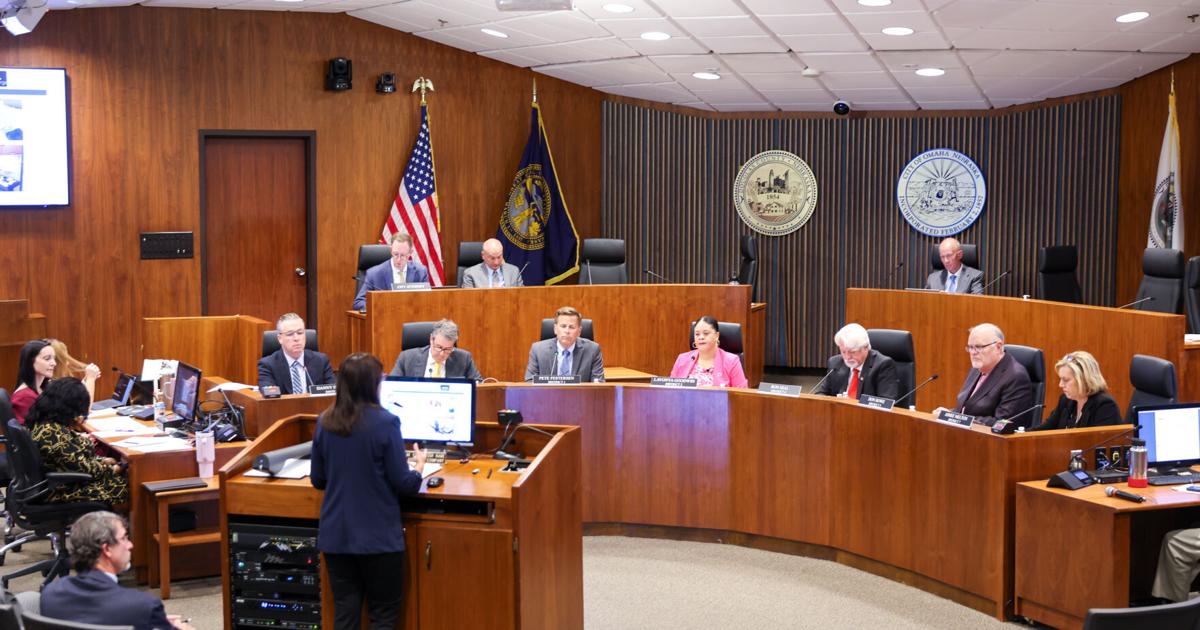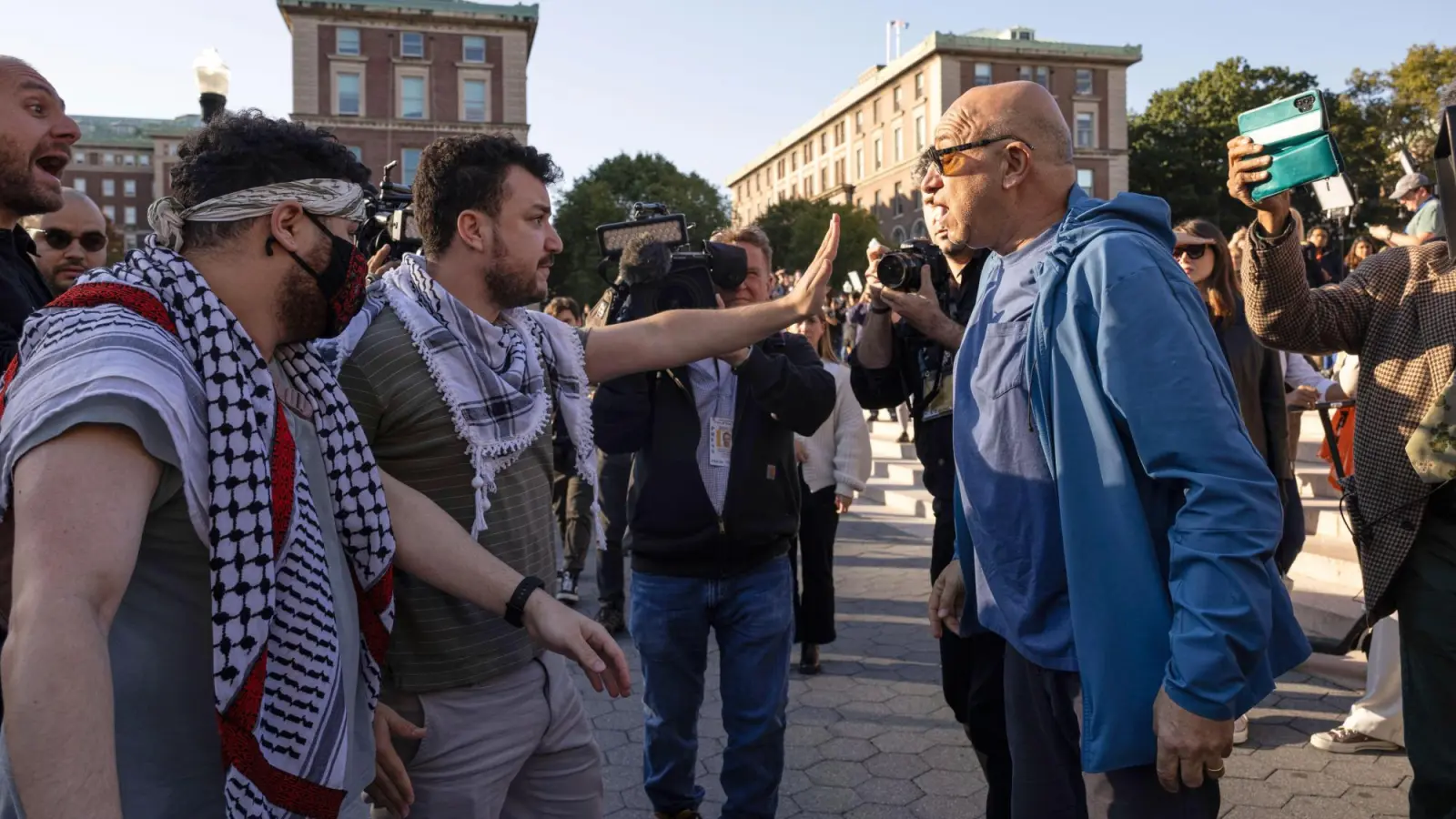
After weeks of often impassioned testimony and letters on both sides of the issue, the Omaha City Council on Tuesday voted 4-3 to lay over until Oct. 21 consideration of an ordinance that would make it a misdemeanor crime to camp on public property.
The vote to lay over the proposal came on a motion by its sponsor, Councilman Brinker Harding.
While there was no discussion of the measure during the council’s regular meeting, Harding announced during a council pre-meeting Tuesday morning that he is working on a draft amendment to the measure that could include some suggestions by advocates for people experiencing homelessness and a problem-solving court option, like existing courts in Douglas County geared toward veterans and people with mental health and substance use issues.
Harding said he has been working with the city law department and other community members on ways to improve the ordinance, which would make camping on public property in Omaha a misdemeanor crime, carrying a penalty of up to a $300 fine and 30 days in jail.
He invited input from fellow city council members during the council pre-meeting Tuesday and was slated to meet with representatives of Omaha Mayor John Ewing’s office later in the day.
“As I said from the time I introduced it, I was open to conversation, to having others weigh in on it, and that’s exactly what I’ve been doing,” Harding said.
The ordinance was scheduled for a third reading and final vote Tuesday. After more than three hours of testimony on the measure at last week’s council meeting, it appeared unlikely the ordinance would have the votes to pass.
Harding and council members Aimee Melton, Don Rowe and Ron Hug voted to lay over the ordinance. Council President Danny Begley and members Pete Festersen and LaVonya Goodwin voted against laying the matter over.
Chris Knauf, CEO of the Stephen Center in Omaha, said neither he nor other shelter directors had been contacted by Harding or received any information about his plans to amend the ordinance before the council’s pre-meeting.
From the little he heard at that meeting, Knauf said, the proposal sounds like a more expensive, more time-consuming alternative to what’s already being done, which is street outreach.
He gave kudos to the mayor and his staff, who have facilitated conversations with advocates and put together a pilot program they all are behind. He said it seems “disingenuous” that Harding wouldn’t pay more attention to that program.
Ewing announced his alternative plan the day before the Sept. 23 council meeting. It couples faster removal of homeless encampments with intensive outreach to help those living on the street get help.
Under the proposal worked out between the mayor and Threshold Coc, a nonprofit that receives federal funds to coordinate the local response to homelessness, those living in encampments would be given seven to 10 days to vacate.
During that time, workers from the city’s more than a dozen homeless outreach organizations, in partnership with the city, would work to try to get them social services, job support and shelter.
Jason Feldhaus, Threshold’s executive director, acknowledged at the time that advocates need to do things differently and that residents dealing with the issue in their backyards have real concerns.
The metro area in the past decade has seen a sharp increase in “unsheltered” homeless — those living in cars, on the streets or in camps. It’s led to an increase in public complaints about encampments.
Opponents of the measure said a criminal penalty would do nothing to address the underlying issues that most often lead people to life on the street, including addiction, mental illness, disabilities and the community’s lack of affordable housing.
Those who work in homeless outreach said the penalty would actually make it harder to help the homeless, creating mistrust, adding to their financial burdens, and creating criminal records that would make it difficult to obtain housing.
Harding said those who successfully completed a problem-solving court would have any legal penalties dismissed, noting that it’s a program that has worked in other cities.
But Knauf said programs that work in one city doesn’t mean it will work in another. Success often depends on the resources available in the area.
He also questioned whether Harding’s ordinance would have to come back to the council for three readings, including a public hearing, if it includes substantial changes.
Harding said that might not necessarily happen, as an updated measure likely would come in the form of an amendment of the whole.
“I’ve been open-minded to making this … the best possible ordinance since I introduced it a month ago,” he said.
julie.anderson@owh.com, 402-444-1066, twitter.com/julieanderson41
Get Government & Politics updates in your inbox!
Stay up-to-date on the latest in local and national government and political topics with our newsletter.
* I understand and agree that registration on or use of this site constitutes agreement to its user agreement and privacy policy.
Julie Anderson
Get email notifications on {{subject}} daily!
Your notification has been saved.
There was a problem saving your notification.
{{description}}
Email notifications are only sent once a day, and only if there are new matching items.
Followed notifications
Please log in to use this feature
Log In
Don’t have an account? Sign Up Today



